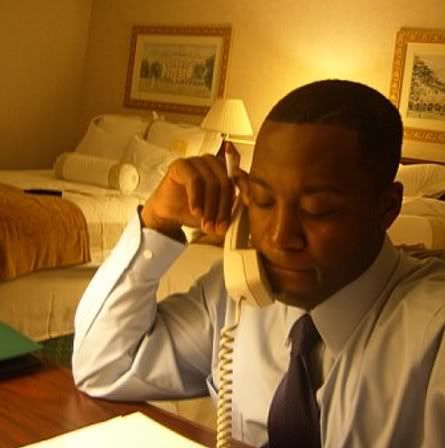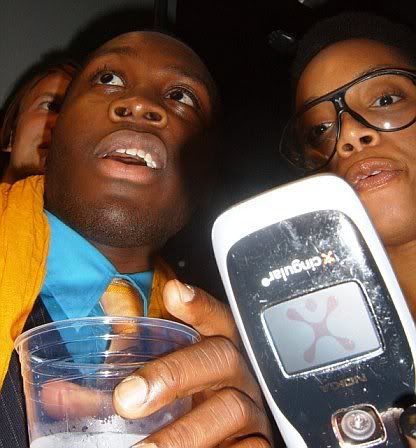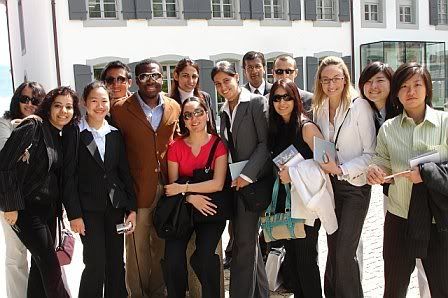Making And Sustaining Contacts By Samuel Hui
 All of us have a network of friends and business contacts, but very few of us know how to use it to our best advantage. Perhaps it is a fear of reaching out or a sense of apathy, but many of us don’t make the effort to find people who can assist us as much as we should.
All of us have a network of friends and business contacts, but very few of us know how to use it to our best advantage. Perhaps it is a fear of reaching out or a sense of apathy, but many of us don’t make the effort to find people who can assist us as much as we should.
Any young professional can benefit from the help of others, so it is imperative to start reaching out for assistance early in your career. These contacts may help you find a job or provide valuable advice.
Start by seeking out who knows whom and devising the proper way to approach each person. To help you on your way, I have put together a guide to making and keeping a healthy network of contacts.
Making Contacts
One of the greatest impediments to making new contacts is the fear that there is no way you can reciprocate. After all, you are likely reaching out to someone above you in stature and success, and you might think that there is nothing they could ever want from you. While this may be true initially, it might not always be the case. Making contacts involves going past the normal comfort zone and placing yourself in a position where you can help someone or be helped by another.
There is one instance in which I reached out for advice, and after many years of nurturing the relationship, I found that my success and work ethic were proving inspirational to my contact’s children. But even if it seems like there is no way to reciprocate, remember that making contacts is part of human nature and that many people might not even expect something in return.
Begin before you need something
Everybody likes to feel valued for their advice, but no one like to be used because they are in a high position or have a golden rolodex of contacts. Talk to your friends and family, and anytime someone interesting comes up in a conversation, take the opportunity to learn about them, then try to meet them.
 The point of this exercise is to establish relationships with your contacts before you are in a position where you require their assistance. Being sociable and interested in what others do is a good trait, but coming off an opportunist is not.
The point of this exercise is to establish relationships with your contacts before you are in a position where you require their assistance. Being sociable and interested in what others do is a good trait, but coming off an opportunist is not.
Do it in person
It is always best to start a new relationship with a face-to-face meeting. The number of people we talk to on a daily basis only highlights the need to make this interaction special. Set up a time to meet with the person and make sure you are punctual. The worst thing you can do is appear disrespectful of their time.
Go prepared
Ask yourself: What do I want to get out of a relationship? Is it to meet other people, to find out about a topic of interest or just to establish this person as a friend and confidante?
Decide what the purpose of your initial meeting is and formulate a plan ahead of time to steer you to that outcome. Get the contact ball rolling by asking the person if he knows of anyone who could provide further assistance.
Show your appreciation
Show your appreciation by being respectful of people’s time. To establish someone firmly as a contact, you need to have a reason for contacting him again, but remember not to overstay your welcome. A short meeting is often better than a long one, especially when the other party is tired. If you wear out your welcome, it is unlikely that you will get a second meeting.
Show your appreciation, but be careful not to overdo it with lavish gifts. A thank-you card is often enough because you don’t want to come across as a brown-noser.
Remember who introduced you
Too often, we are so excited about meeting a contact that we forget to thank the person who put us in contact or, at the very least, to keep them in the loop. No one likes to be forgotten, so show your appreciation by including that person if you ever meet up with your contact in a social setting.
Sustaining Contacts
Maintaining a network of contacts is often harder than building one in the first place; the larger your network, the more time you have to take out of your day to keep it in order. We frequently procrastinate and put off making that phone call or writing that card because it is not on the list of priorities for the day. Then, slowly but surely, it slips our minds because it is not a priority for the next day either.
 The best way to maintain a healthy network of contacts is to create some rules and guidelines on how you want to stay in touch with an individual. Put together your list of contacts with reminders for key dates, such as Christmas, birthdays or other important events.
The best way to maintain a healthy network of contacts is to create some rules and guidelines on how you want to stay in touch with an individual. Put together your list of contacts with reminders for key dates, such as Christmas, birthdays or other important events.
Here are some tips to help you maintain your contacts.
Make use of electronic resources
Reminders are helpful. Programs like Microsoft Outlook have useful tools to help you stay current with your list of contacts. Put in any key dates you would like to remember as annual tasks. And if you ever change computers or need to create another list of contacts, the details can always be exported as a file that can be read by other computers running the same program.
There is also more powerful contact software — such as ACT or other customer relationship management programs — that can be used to provide an entire team of people with access to your contacts and their particulars.
Nurture the relationship
There are times when you should gather some of your contacts together. Invite them out and introduce them to one another. After all, if you can benefit from knowing some of these people, they may benefit from knowing one another as well. Some people prefer to have small get-togethers, but if you are pressed for time, one large event will have to suffice.
These get-togethers or events could be means of giving back or thanking those who helped you get where you are. Show them some recognition for all they have done for you. However, in the process of nurturing the relationship, you have to be careful about how personal an atmosphere you create. While it is always good to have more friends, in a business environment, there are some boundaries that should be upheld.
Schedule regular correspondence
There is no golden rule for how often you should stay in contact with someone, but a minimum of twice a year seems to be a good measure.
If you limit your correspondence to once a year, you will likely leave it for the holiday season when people are inundated with correspondence. That is why it is important to schedule at least one other time during the year to reach out and give the other party a call or pay them a visit.
Building Relationships
Networking takes time and effort, but there are enormous benefits. Many executives pay to be members of an exclusive club or association mainly for the advantages of meeting similarly successful people, so why not make use of the network that is free to you?
2 Comments
Comments RSS TrackBack Identifier URI
Leave a comment

Great tips and great kickin’ it with you last night!
naj:)
Dope article. Good read.